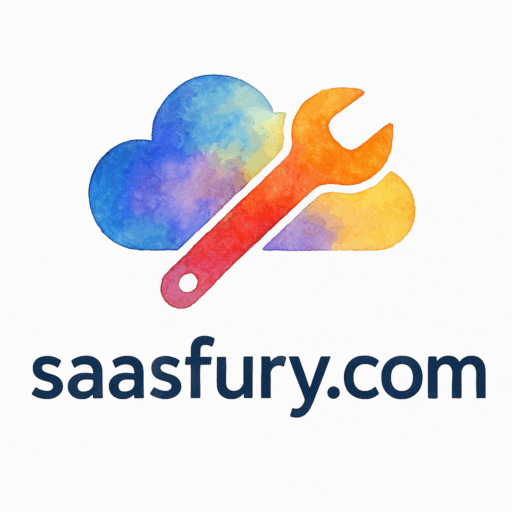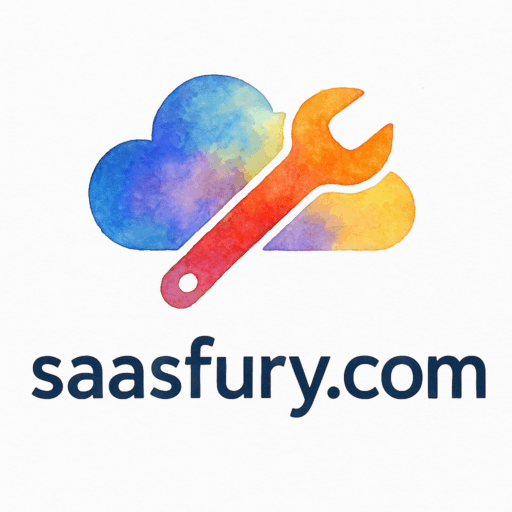Introduction
Starting an accounting business in today’s fast-paced digital era isn’t just about crunching numbers—it’s about working smarter, not harder. That’s where SaaS tools for accounting startups come in. They streamline tasks, save time, and allow accountants to focus on what really matters: helping clients grow financially.
In this article, we’ll dive into six powerful SaaS tool recommendations tailored for accounting startups. Whether you’re a solo entrepreneur or a growing firm, these tools can make a world of difference.
Why SaaS Tools Are Essential for Accounting Startups
The Shift from Traditional Software to SaaS
Gone are the days of clunky, desktop-based accounting programs. With cloud-based SaaS tools, everything lives in the cloud. You can access your data anytime, anywhere—whether you’re working from the office, at a café, or even on vacation.
Cost-Effectiveness and Flexibility
Instead of shelling out thousands upfront for licenses, SaaS operates on a subscription model. That means you only pay for what you use, making it budget-friendly for startups—especially those in professional services or small accounting firms.

Scalability for Growing Startups
Your accounting startup might start small, but scalable SaaS solutions grow with you. Need more users or additional features? Just upgrade your plan—no need to migrate to a completely new system.
Key Features to Look for in SaaS Tools
Cloud Security and Compliance
When handling sensitive financial data, security is non-negotiable. Look for tools that are GDPR and SOC2 compliant—many medical SaaS tools already set the standard in this space.
Automation and Integration
Automation saves time on repetitive tasks like invoicing, payroll, and reconciliations. Bonus points if the SaaS integrates with business tools like CRM or project management systems.
User-Friendly Interface
You don’t need to be a tech wizard to run an accounting firm. Choose tools with intuitive dashboards and easy navigation.
Real-Time Data and Reporting
Real-time insights allow accountants to make data-driven decisions quickly. That’s a game-changer for startups aiming to stay competitive in retail and e-commerce or consulting industries.
SaaS Tool #1: QuickBooks Online
Why QuickBooks Works for Startups
QuickBooks has long been a favorite among accounting professionals, and its SaaS version is no exception.
Features That Make It Stand Out
- Expense tracking
- Payroll integration
- Automated invoicing
- Real-time reporting
Pros and Cons
✅ User-friendly, widely adopted, and integrates with hundreds of apps
❌ Can be pricey as your team grows
For startups serving hospitality businesses, QuickBooks makes managing invoices and staff payroll easier.
SaaS Tool #2: Xero
How Xero Simplifies Accounting
Xero is known for its clean interface and automation features, making bookkeeping less of a headache.
Features Tailored for Startups
- Bank reconciliation
- Unlimited users on all plans
- Inventory management
Pricing and Accessibility
Xero offers competitive pricing with flexibility for startups scaling fast. It’s also a favorite among marketing agencies and creative firms needing flexible accounting solutions.
SaaS Tool #3: FreshBooks
Perfect for Freelancers and Small Firms
FreshBooks is the go-to SaaS accounting tool for freelancers, consultants, and small teams.
Time Tracking and Invoicing Power
It shines with built-in time tracking, project management, and client invoicing.
Pros and Limitations
✅ Simple, intuitive, and affordable
❌ Limited scalability for larger firms
FreshBooks is also popular with creative education and graphic design professionals who need simple invoicing.
SaaS Tool #4: Zoho Books
Comprehensive Suite for Startups
Zoho Books is part of the larger Zoho ecosystem, offering a complete business management solution.
Integrations and Add-ons
From CRM to HR tools, Zoho easily integrates within its own suite or external apps—similar to the omnichannel SaaS solutions driving retail success.
Strengths and Weaknesses
✅ Great value for money
❌ May feel overwhelming with too many options
SaaS Tool #5: Wave Accounting
Free Yet Powerful for Small Teams
Wave is ideal for startups with tight budgets. Despite being free, it doesn’t compromise on functionality.
Ease of Use and Accessibility
Its simple interface allows non-accountants to manage finances with ease.
Limitations to Consider
✅ Free to use
❌ Lacks advanced features needed for larger firms
Wave is often chosen by small business owners who just need straightforward accounting without the extras.
SaaS Tool #6: Sage Business Cloud Accounting
Why Sage Appeals to Startups
Sage is a trusted name in accounting, now modernized with cloud-first solutions.
Features That Set It Apart
- Multi-currency support
- Automated bank feeds
- Compliance with tax regulations
Pros and Drawbacks
✅ Reliable and trusted by professionals
❌ Slightly steeper learning curve compared to others
This makes Sage a good fit for startups expanding internationally or working with language coaches and global clients.
Comparison of the 6 SaaS Tools
Pricing Overview
- Wave: Free
- FreshBooks: Budget-friendly
- Zoho: Moderate pricing with lots of features
- QuickBooks, Xero, Sage: Premium options with scalability
Best for Scalability
QuickBooks Online and Xero
Best for Solo Entrepreneurs
FreshBooks and Wave Accounting
How to Choose the Right SaaS Tool for Your Startup
Identify Your Needs First
Make a list: invoicing, payroll, tax filing—what’s non-negotiable?
Consider Growth and Future Expansion
Don’t just think about today—choose a SaaS tool that grows with your startup.
Don’t Forget Customer Support
A tool is only as good as the support behind it. Ensure 24/7 or responsive customer service.
The Future of SaaS in Accounting Startups
AI and Machine Learning Integration
Expect AI to automate predictive analysis and financial forecasting—something already trending in healthcare SaaS.
Mobile-First Accounting
The future is mobile. SaaS tools are shifting toward mobile-friendly, app-first platforms.
Collaboration in the Cloud
Cloud-based tools allow real-time collaboration between accountants, clients, and stakeholders, much like hospitality SaaS connects teams across hotels and restaurants.
Conclusion
Choosing the right SaaS tool for accounting startups can be the difference between drowning in spreadsheets and running a smooth, efficient firm. From QuickBooks to Wave, each option has unique strengths tailored to different business sizes and needs. The best part? They all free you up to focus on what really matters—growing your startup and serving your clients better.
FAQs
1. What is the best SaaS tool for small accounting startups?
FreshBooks and Wave are great picks for small teams or freelancers starting out.
2. Which SaaS accounting tool is most scalable?
QuickBooks Online and Xero are best for scalability.
3. Are SaaS accounting tools secure?
Yes, most leading tools use encryption and are compliant with global security standards.
4. Do these tools integrate with payment gateways?
Absolutely—most integrate with PayPal, Stripe, and even direct bank connections.
5. Can I switch SaaS tools later if my startup grows?
Yes, though it may involve data migration. Many providers offer migration support.
6. Are free SaaS tools like Wave reliable?
Wave is reliable for basic accounting but may lack advanced features.
7. How do I choose between QuickBooks and Xero?
QuickBooks is slightly more popular in the U.S., while Xero offers unlimited users and is loved globally.

